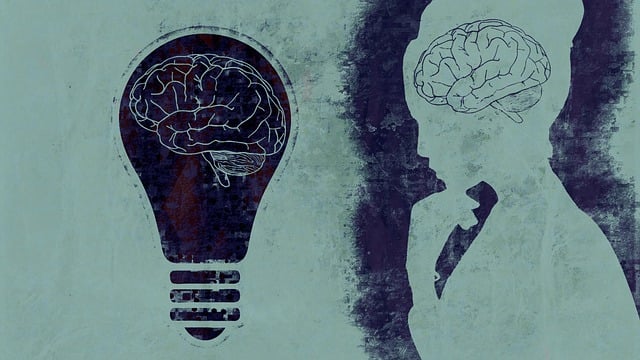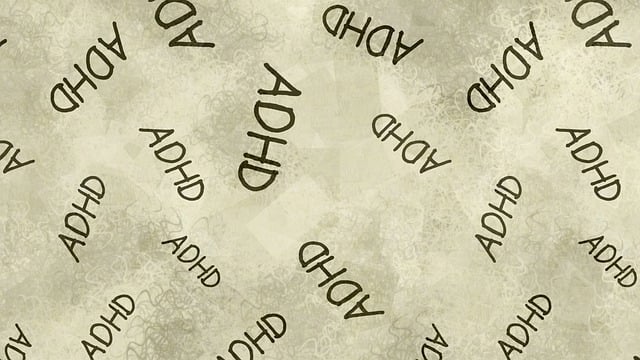Understanding mental illness diagnoses is crucial for effective treatment. Healthcare professionals conduct initial assessments using structured interviews, questionnaires, and psychological testing to differentiate conditions. Programs like Aurora Acceptance and Commitment Therapy (ACT) emphasize unique individual responses to distressing thoughts and emotions. Emotional intelligence enhances self-awareness and communication with providers, fostering collaboration essential for successful treatment planning. ACT combines acceptance of emotions with commitment to valued actions, empowering individuals to manage symptoms and pursue meaningful goals despite challenges. A comprehensive guide for patients should include various therapeutic approaches, tools like mental wellness journaling, and community outreach programs to support active participation in healing journeys. Aurora ACT leverages self-awareness exercises to accept unmanageable thoughts and channel energy into living according to values, fostering positive thinking and conflict resolution for long-term well-being.
“Mental illness diagnosis and treatment navigation can be a daunting journey. This comprehensive guide aims to demystify the process, focusing on the essential tools for managing mental health effectively. We explore ‘Understanding Mental Illness Diagnoses’ and introduce ‘Aurora Acceptance and Commitment Therapy (ACT)’ as a revolutionary approach.
Additionally, our feature on ‘Navigating Treatment Options’ equips patients with knowledge, while ‘Building Resilience with Aurora’ highlights the support available through ACT-based recovery programs.”
- Understanding Mental Illness Diagnoses: Unraveling the Process
- The Role of Acceptance and Commitment Therapy (ACT) in Treatment
- Navigating Treatment Options: A Comprehensive Guide for Patients
- Building Resilience with Aurora: Supporting Recovery Through ACT
Understanding Mental Illness Diagnoses: Unraveling the Process

Understanding mental illness diagnoses is a crucial step in navigating treatment effectively. The process often begins with an initial assessment by a qualified healthcare professional who will gather detailed information about an individual’s symptoms, medical history, and overall well-being. This comprehensive evaluation helps in differentiating between various mental health conditions, as many share overlapping symptoms. For example, Aurora Acceptance and Commitment Therapy (ACT) recognizes that distressing thoughts and emotions are common across different disorders, but the unique aspects lie in how individuals relate to these experiences.
The diagnostic journey involves a multi-faceted approach. This may include structured clinical interviews, standardized questionnaires, and even psychological testing to gain deeper insights. Mental wellness coaching programs focus on empowering individuals to understand their diagnoses, setting treatment goals, and learning coping strategies. Additionally, emotional intelligence plays a significant role in self-awareness and effective communication with healthcare providers, fostering a collaborative environment essential for successful treatment planning.
The Role of Acceptance and Commitment Therapy (ACT) in Treatment

Acceptance and Commitment Therapy (ACT) has emerged as a powerful approach to mental health treatment, offering unique benefits for individuals navigating challenging diagnoses. This form of therapy encourages acceptance of difficult thoughts and emotions while fostering a commitment to valued actions, promoting inner strength development. By cultivating mindfulness and challenging unhelpful avoidance strategies, ACT enables folks to manage symptoms and live more fulfilling lives, enhancing their overall well-being.
In the context of trauma support services, ACT can be particularly effective in helping individuals process and heal from past traumas. Crisis intervention guidance is seamlessly integrated into this therapy, allowing for rapid response and adaptive coping strategies during distressing situations. Through ACT, clients gain a deeper understanding of their experiences, fostering resilience and enabling them to pursue meaningful goals despite challenges, ultimately revolutionizing their mental health journey with Aurora Acceptance and Commitment Therapy.
Navigating Treatment Options: A Comprehensive Guide for Patients

Navigating treatment options for mental illness can be a daunting task, but with the right guidance, individuals can find their path to recovery and improved mental wellness. A comprehensive guide tailored to patients can serve as a beacon in this often confusing landscape. This resource should offer an insightful look at various therapeutic approaches, such as Aurora Acceptance and Commitment Therapy (ACT), which focuses on accepting one’s thoughts and emotions while committing to meaningful actions.
By providing clear explanations of different treatment modalities, patients can make informed decisions about their care. Incorporating helpful tools like mental wellness journaling exercises and empathy-building strategies through community outreach program implementations can empower individuals to actively participate in their healing journey. This holistic approach ensures that patients are equipped with the necessary skills and support systems to navigate their mental health treatments effectively.
Building Resilience with Aurora: Supporting Recovery Through ACT

At its core, building resilience with Aurora, an innovative approach that incorporates Acceptance and Commitment Therapy (ACT), focuses on empowering individuals to embrace their mental health journey with hope and determination. ACT encourages individuals to cultivate self-awareness exercises, fostering a deeper understanding of their thoughts and emotions. By accepting what they cannot control, users can focus their energy on living in accordance with their values, promoting positive thinking and the development of effective conflict resolution techniques.
Aurora’s holistic approach goes beyond traditional therapy methods by integrating these practices into engaging and interactive platforms. Through various exercises, individuals learn to navigate challenges without letting them dictate their lives. This process allows for a more profound sense of control and agency, pivotal components in mental illness recovery. By combining self-acceptance with commitment to valued actions, Aurora supports users on their path to long-term well-being.
In navigating the complex landscape of mental illness diagnosis and treatment, resources like Aurora Acceptance and Commitment Therapy (ACT) offer a transformative approach. By understanding diagnoses, embracing therapeutic methods such as ACT, and utilizing comprehensive guides to explore treatment options, individuals can foster resilience and support their recovery journeys. Aurora’s role in this process is vital, guiding folks towards healing and a brighter future.














